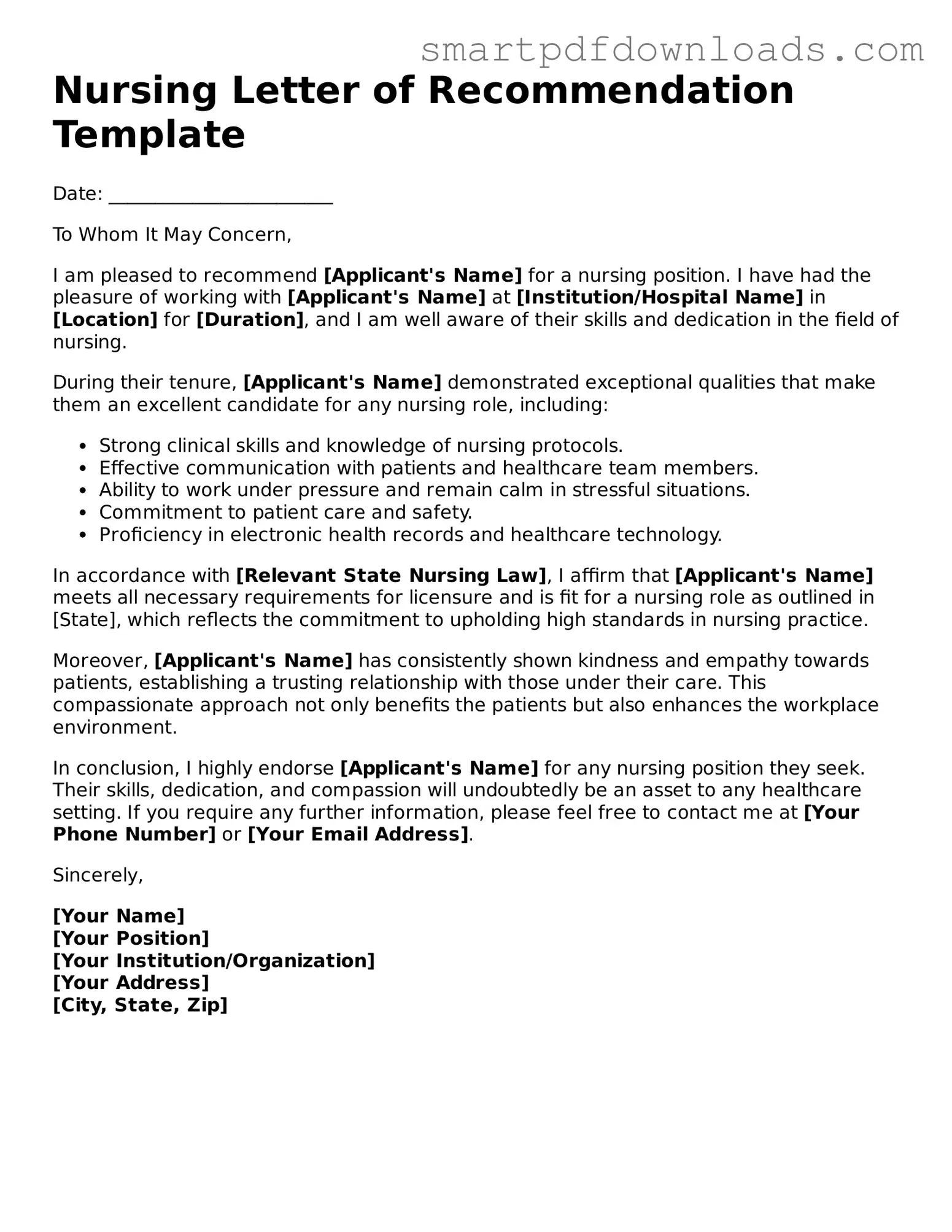Free Nursing Letter of Recommendation Form
The Nursing Letter of Recommendation form serves as a vital document that supports a nursing candidate's application by highlighting their skills, experiences, and character. This form is typically completed by a professional who can attest to the applicant's qualifications and potential in the nursing field. Understanding its importance can greatly enhance a candidate's chances of securing a position in a competitive healthcare environment.
Edit Nursing Letter of Recommendation Online

Free Nursing Letter of Recommendation Form
Edit Nursing Letter of Recommendation Online

Edit Nursing Letter of Recommendation Online
or
⇓ PDF File
Finish the form and move on
Edit Nursing Letter of Recommendation online fast, without printing.